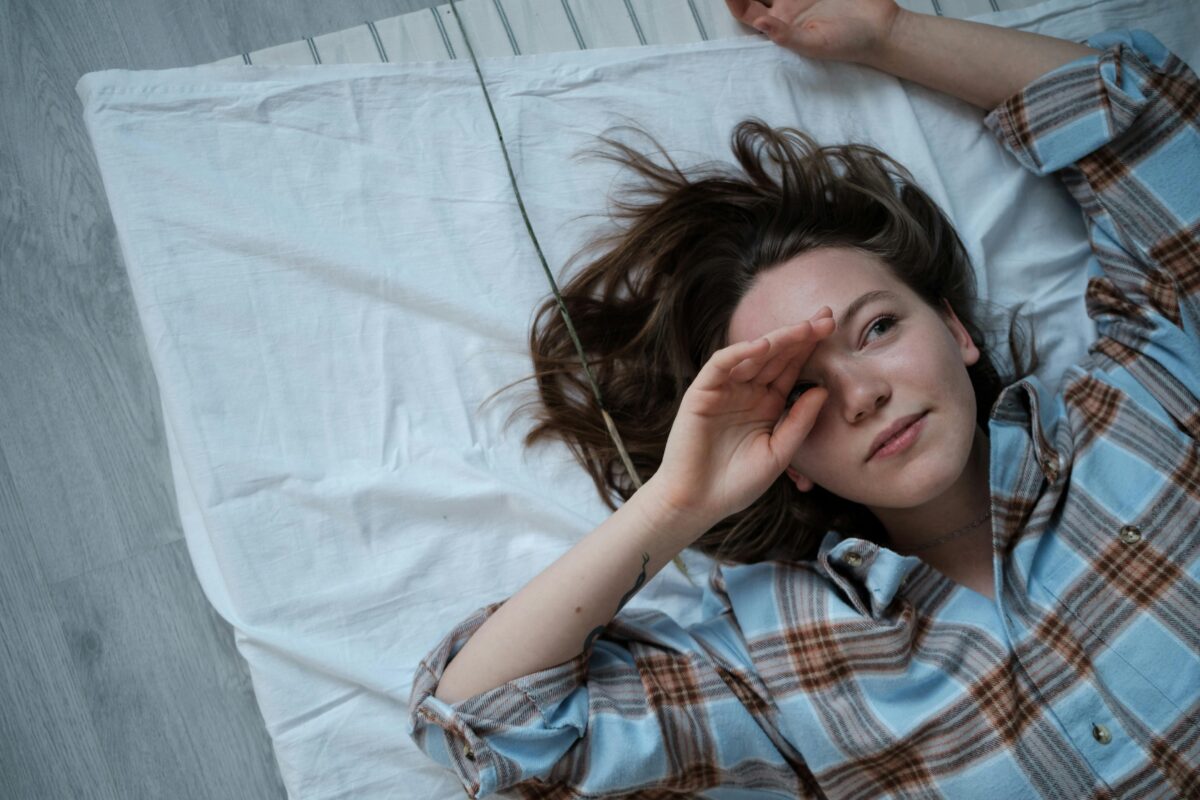Sleeping Tablets
Understanding Side Effects & Interactions of Sleeping Pills
Many people across the UK rely on sleeping pills to manage sleepless nights. Whether prescribed by a doctor or bought over the counter, these medications can provide short-term relief from insomnia. But understanding sleeping pills side effects UK is essential for anyone using them. Knowing how they interact with alcohol, food, and other drugs helps you stay safe and avoid unwanted reactions.
This guide explores the most common side effects, the risks of combining sleeping pills with other substances, and how to use them safely.
What Are Sleeping Pills and How Do They Work?
Sleeping pills are medications designed to help people fall asleep faster or stay asleep longer. They work by affecting chemicals in the brain that control relaxation and sleep. Some act quickly and are ideal for people who struggle to fall asleep. Others last longer and are used for those who wake up too often during the night.
In the UK, the most common sleeping pills include Zopiclone, Zolpidem, and Temazepam. These are prescription-only medicines and are often recommended for short-term use. Over-the-counter options, like antihistamine-based sleep aids, are also available but may still cause drowsiness the next day.
While sleeping pills can be helpful, they are not a long-term solution for chronic sleep problems. Over time, your body can become used to them, leading to tolerance or dependence.
Common Sleeping Pills Side Effects UK Users Should Know
Every medication comes with potential side effects. Most people experience only mild symptoms, but for some, the effects can be uncomfortable or even dangerous.
The most common side effect of sleeping pills is next-day drowsiness. This happens because some medicines stay active in your body longer than expected. You may feel tired or groggy the next morning, which can make driving or working unsafe.
Another frequent complaint is dizziness. Sleeping pills slow brain activity to help you relax, but this can also affect balance and coordination. Older adults are particularly vulnerable to falls if they get up suddenly during the night.
Memory problems can occur too. Some users report not remembering conversations or actions from the night before. This “amnesia effect” is usually linked to stronger prescription pills like Zolpidem or Zopiclone.
Dependence is another issue. Taking sleeping pills for too long can make it difficult to sleep without them. When you stop suddenly, withdrawal symptoms such as anxiety or restlessness may appear.
In rare cases, people have experienced unusual behaviours such as sleepwalking, eating, or even driving without remembering it later. If you notice anything like this, speak to your doctor immediately.
Understanding Alcohol Interactions
Combining alcohol and sleeping pills is one of the most dangerous mistakes people make. Both substances depress the central nervous system, which means they slow down brain activity and breathing.
When taken together, their sedative effects multiply. Even a small amount of alcohol can intensify drowsiness and confusion. Some people may experience shallow breathing, memory loss, or loss of coordination. In severe cases, this combination can lead to overdose or coma.
Alcohol also interferes with how the liver breaks down medication. This means the effects of sleeping pills can last much longer, increasing the risk of next-day grogginess or accidents.
The safest choice is to avoid drinking entirely while taking any type of sleeping pill. If you’ve consumed alcohol, wait until the next day before taking your medication.
Food and Sleeping Pills: How Meals Affect Effectiveness
Many people don’t realise that what they eat can change how sleeping pills work. Certain foods slow down the body’s ability to absorb medication, which can delay its effects.
For example, taking a pill right after a heavy or fatty meal can make it take longer to work. You may find yourself lying awake longer than usual. On the other hand, taking it on an empty stomach allows it to act faster.
Some foods can also change how the body breaks down the drug. Grapefruit, for instance, contains natural compounds that interfere with liver enzymes responsible for metabolising many medications. This can make sleeping pills stay in your system longer and increase side effects.
Caffeine-containing foods and drinks also interfere with sleep aids. Chocolate, coffee, and cola all contain stimulants that can counteract the effects of your medication.
It’s usually best to take your sleeping pill on an empty stomach and avoid eating or drinking anything stimulating before bedtime.
Drug Combos: The Risks of Mixing Sleeping Pills with Other Medications
Many people take more than one medication daily, but drug combos can be risky when sleeping pills are involved. The main problem is that multiple drugs may target the same brain chemicals, which can amplify side effects like drowsiness and confusion.
Mixing sleeping pills with antidepressants or anti-anxiety drugs can make you feel overly sedated. Some painkillers, especially opioids, are particularly dangerous when combined with sleep aids because they can slow breathing to dangerous levels.
Even over-the-counter medications can cause issues. Antihistamines or cough syrups, for example, already have a sedative effect. When taken with a sleeping pill, they can lead to extreme tiredness or disorientation.
Herbal supplements are not always safe either. Remedies such as valerian root, St. John’s wort, or CBD oil can interact with sleep medications and increase their potency. Always inform your pharmacist or doctor about any supplements you take.
How to Use Sleeping Pills Safely
Using sleeping pills responsibly is key to avoiding side effects and interactions. Always follow your doctor’s instructions exactly as prescribed. Taking more than the recommended dose will not help you sleep better but can increase health risks.
Avoid alcohol completely while using these medications. Even one drink can change how the drug works in your body. Try to plan your sleep so that you can rest for at least seven to eight hours after taking your pill. Waking up too soon can leave you feeling dazed or lightheaded.
If you are using other medications, talk to your doctor about possible drug combos to avoid. They can review your prescriptions to make sure there are no dangerous overlaps.
Lastly, try not to rely on sleeping pills every night. Give your body occasional breaks to prevent dependency.
Natural Alternatives and Lifestyle Tips
While sleeping pills can be effective in the short term, natural approaches often offer safer, longer-lasting solutions. Making small changes to your routine can help improve sleep quality without medication.
Stick to a consistent sleep schedule by going to bed and waking up at the same time each day. Avoid screens for at least 30 minutes before bed, as blue light can interfere with melatonin production.
Create a relaxing bedtime environment. Keep your room cool, dark, and quiet. Gentle activities like reading or listening to calm music can signal to your body that it’s time to rest.
Caffeine is another factor. Limit your intake in the afternoon and evening. Even small amounts can delay sleep. Light exercise during the day can also promote better rest at night.
Some people find herbal teas like chamomile or lavender soothing. While these aren’t as strong as prescription pills, they can help you unwind naturally.
When to See a Doctor
It’s important to seek medical advice if you’ve been using sleeping pills for more than a few weeks. These medications are usually intended for short-term use only. Prolonged use increases the risk of side effects, tolerance, and dependency.
You should also contact a healthcare professional if you experience new or worsening symptoms, such as confusion, chest pain, or breathing difficulties. These could signal a serious reaction that needs attention.
If you decide to stop taking sleeping pills after long-term use, don’t quit suddenly. Gradually reducing your dose under medical supervision helps prevent withdrawal and rebound insomnia.
Final Thoughts
Understanding sleeping pills side effects UK is essential for anyone using them to manage insomnia. These medications can provide valuable relief but must be handled carefully. Knowing how they interact with alcohol, food, and other drugs helps you avoid unnecessary risks.
Always use sleeping pills under medical supervision and never exceed your prescribed dose. If you experience ongoing sleep issues, explore natural methods and lifestyle changes. Safer, sustainable habits often lead to better sleep — without the unwanted side effects.
FAQs
1. What are the most common sleeping pills side effects UK users experience?
The most frequent side effects include next-day drowsiness, dizziness, and memory problems. Some people may also develop dependency if they use them for too long.
2. Can I drink alcohol while taking sleeping pills?
No. Combining the two can cause extreme drowsiness, breathing problems, and loss of coordination. It’s best to avoid alcohol completely.
3. Do foods interact with sleeping pills?
Yes. Heavy or fatty meals can delay absorption, while grapefruit can increase potency. Taking your pill on an empty stomach often works best.
4. What happens if I mix sleeping pills with other medications?
Mixing sleep aids with antidepressants, painkillers, or antihistamines can cause dangerous sedation. Always check with your doctor before combining medicines.
5. How can I reduce side effects from sleeping pills?
Use the lowest dose for the shortest time possible. Avoid alcohol, follow your doctor’s advice, and allow enough sleep after taking your pill.

